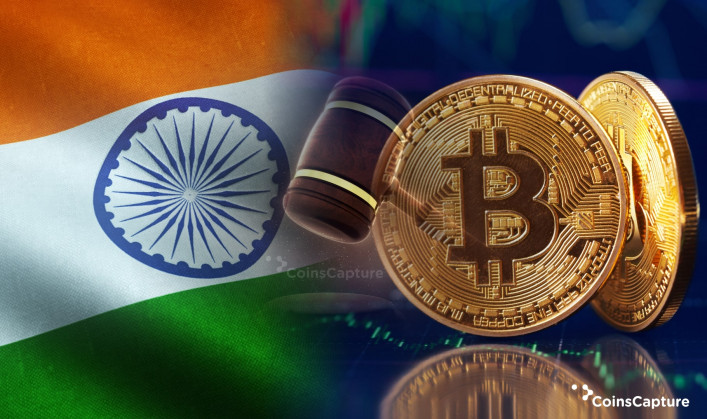7 November 2025
India's G20 Presidency Will Consider Banning Unbacked Crypto Assets
In December 2022, the Financial Stability Report (FSR) was published by the Reserve Bank of India (RBI), India's central bank. Government-issued CBDCs, blockchain-based commodities, as well as DeFi are just some of the topics covered in the 172-page study. According to the Financial Stability Report published by the central bank, a consensus on crypto assets is necessary to deal with potential long-term risks to financial stability, protect the people, as well as defend speculators.
Also Read: LinkedIn States Blockchain Is Singapore's Fastest-Growing Talent
Furthermore, RBI proposed three approaches to governing crypto assets. The research suggested that a solution would be to outright ban crypto assets, giving as reasons the 'near to insignificant' number of practical applications of cryptocurrency and the fact that various jurisdictions have different regulatory control processes. The paper also suggested putting cryptocurrency exchanges to the identical legislation as conventional financial institutions as well as platforms on the basis of the "same-risk, same-regulatory-outcome" premise.
Also Read: UK Financial Changes Offer Crypto Investors Tax Incentives
According to the source, one of India's goals as G20 president is to create a framework for the worldwide regulation and possible limitation of unbacked crypto assets, stablecoins, as well as Decentralized Finance. When emerging corporate strategies as well as technologies grow fundamental in nature, it might be challenging to control them, according to the RBI study. Lawmakers must craft an appropriate legislative framework to alleviate fears for the crypto ecosystem's financial stability while encouraging long-term development. India has been serving as the Group 20 chairperson since the beginning of this month. The combined GDP of the 19 member nations, which span five continents and the European Union, is 85 percent of the world's total.
Given that the industry's inherent volatility as well as riskiness will eventually limit its growth, a third alternative is to let it crash and render it systemically irrelevant. The real economy may feel the effects more broadly if the third option were implemented, since the sector could become more integrated with mainstream finance and siphon money away from conventional finance. RBI said that the cryptocurrency market was extremely volatile and plagued by inherent weaknesses, citing the recent demise of crypto exchange FTX as an example. The government also noted the recent ban on stablecoin transactions by Binance and TerraLuna as examples of events that will define the global cryptocurrency landscape in 2022.
The RBI claims that cryptocurrency prices dive as inflation rises and that they are "very volatile," both of which are correlated with the equity market. The collapse of the crypto platform FTX as well as the subsequent sell-offs in the cryptocurrency market are mentioned in the study as examples of events that have drawn attention to the ecosystem's underlying problems. It also places an emphasis on the Terra or even Luna collapse that occurred in May, as well as the failure of other major cryptocurrency enterprises, such as the cryptocurrency hedge fund Three Arrows Capital (3AC) as well as the cryptocurrency lending network Celsius Network.
In order to detect significant risks to the Indian financial system from both international and local macro-financial trends, the Reserve Bank of India (RBI) conducts systemic risk surveys twice a year and collects data from a wide variety of resources. Concerns about cryptocurrency have been growing, and a government awareness campaign was said to be in the works only yesterday. The efforts are anticipated to focus on educating novice investors about the legitimacy and potential hazards of cryptocurrency. Before all this, RBI Governor Shaktikanta Das made his most stinging comment yet against cryptocurrencies when he predicted that private cryptocurrencies will be to blame for the next financial catastrophe.
Indian cryptocurrency exchanges have been hit hard by the current market downturn, therefore they've taken to posting comprehensive evidence of reserves in an effort to reassure consumers as well as boost visibility. To calm widespread concerns that have seized the market, CoinDCX just released an audited report verifying all of its reserves. It remains to be seen how this endeavor to deal with cryptocurrencies globally turns out as policymakers meet to discuss possible responses. The result will rely on the responses of other countries, notwithstanding India's best efforts to press the G20 nations for a policy agreement on the topic.
However, the central government is making no effort to avoid an assault on the cryptocurrency community. A number of regulatory rules, such as a 30% tax on gains from cryptocurrency investments and a 1% TDS on the sale of cryptocurrency assets, have made this market very unappealing. Besides that, the focus has been cast on the nascent business as a result of raids on cryptocurrency exchanges including WazirX, Vauld, CoinSwitch, Kuber, and many more on charges ranging from money laundering to disregarding FX standards. Indian authorities have been led so far by socioeconomic considerations, but they are currently looking for measures to mitigate the effects of a predicted catastrophic cryptocurrency crash.
Disclaimer: The author’s thoughts and comments are solely for educational reasons and informative purposes only. They do not represent financial, investment, or other advice.






